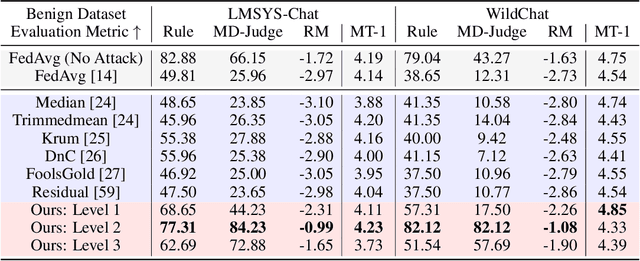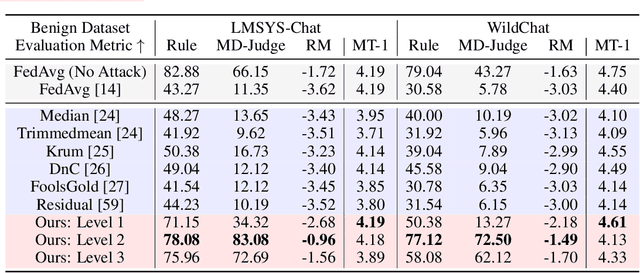Emerging Safety Attack and Defense in Federated Instruction Tuning of Large Language Models
Paper and Code
Jun 15, 2024



Federated learning (FL) enables multiple parties to collaboratively fine-tune an large language model (LLM) without the need of direct data sharing. Ideally, by training on decentralized data that is aligned with human preferences and safety principles, federated instruction tuning can result in an LLM that could behave in a helpful and safe manner. In this paper, we for the first time reveal the vulnerability of safety alignment in FedIT by proposing a simple, stealthy, yet effective safety attack method. Specifically, the malicious clients could automatically generate attack data without involving manual efforts and attack the FedIT system by training their local LLMs on such attack data. Unfortunately, this proposed safety attack not only can compromise the safety alignment of LLM trained via FedIT, but also can not be effectively defended against by many existing FL defense methods. Targeting this, we further propose a post-hoc defense method, which could rely on a fully automated pipeline: generation of defense data and further fine-tuning of the LLM. Extensive experiments show that our safety attack method can significantly compromise the LLM's safety alignment (e.g., reduce safety rate by 70\%), which can not be effectively defended by existing defense methods (at most 4\% absolute improvement), while our safety defense method can significantly enhance the attacked LLM's safety alignment (at most 69\% absolute improvement).
 Add to Chrome
Add to Chrome Add to Firefox
Add to Firefox Add to Edge
Add to Edge